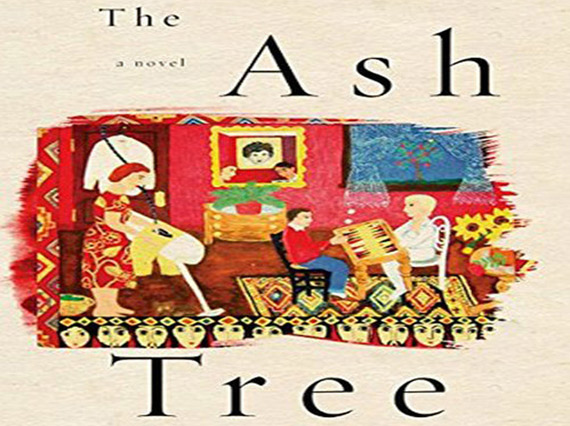Cleveland author honors memory of Genocide victims with new novel

Cleveland.com published an article about Daniel Melnick, an American-Jewish writer and his book ��?The Ash Tree’ based on the Armenian Genocide.
According to Armeniangenocide100.org, the article reads:
Processions of refugees wander the desert of Syria – defeated and lost, desperate for some safe passage under a beating sun as pitiless as the world around them. It is a familiar scene, one we have come to witness on a daily basis. But this particular scene is not from the Syrian civil war, 2015.
It is 1915, a year that brought the Armenian Genocide. It began one evening with the rounding up and killing of Armenian intellectuals in Constantinople and included the forced death march of hundreds of thousands into the Syrian desert. The Armenian Genocide led to the creation of a vast Diaspora. It is also the invisible character that shapes and haunts ��?The Ash Tree’.
Beachwood resident Daniel Melnick’s latest novel spans decades and generations to chronicle an Armenian-American family. While the book opens in 1972, in California, it quickly reaches back to 1915, to the crumbling Ottoman Empire.
Armen Ararat, is the central figure in ��?The Ash Tree’. His life spans the entirety of the novel, beginning as a youth when he witnesses the corpses of 20 Armenian men hanging from the gallows under the supervision of Turkish gendarmes and soldiers. We are quickly pulled forward 10 years to Berkley, California – where Armen is a student living with an Armenian landlady, Madame Hagopian, whose husband was one of the 20 men who perished that night.
This is a story not about the Armenian-American per se. Rather, it is an exploration of the hyphen in between ��?Armenian’ and ��?American’ – the struggle, the road, that existential purgatory that lies between the Old World and the ��?American Dream’. “So much of our culture is focused on identity politics, but what is often overlooked is the struggle to find identity,” says Melnick, a Jewish-American and a retired Cleveland State University literature professor who continues to teach at Case Western Reserve University.
Melnick, 71, based ��?The Ash Tree’ on his family and the community he encountered through his wife, Jeannette Melnick (nee Arax). “The Armenians have the fragile status of a dispersed people, and you suddenly had hundreds of people settling in places – some you wouldn’t imagine, like Fresno,” he says, referring to his wife’s hometown. “And yet Fresno had a lot of same qualities of the lands they left behind.” The central California city became a magnet for Armenian farmers in part because of its Mediterranean-like soil and weather.
As Armen, who pens poetry before assuming the life of a farmer and businessman in Fresno, writes: “In exile, I cannot forget.” America might be his place of exile, but it is home to his eventual wife, Artemis. And as a girl, the Connecticut-born Armenian-American dreamed of marrying an American-born man. She wanted to be free from the specter of 1915.
Negotiating the push and pull of the Old and New worlds is common in immigrant families, even generations later. But it is particularly acute in the Armenian-American community, says Melnick. Not just because of the Genocide, but also because of the ongoing struggle to have it recognized. While France, Russia, Canada and Brazil and 40 other countries around the world have officially recognized the Armenian Genocide, United States still has not, due to pressure and threats from Turkey, which denies that the Genocide took place.
��?The Ash Tree’ is not just a historical or a political novel. “While there are historical markers and political threads throughout the story, I’m more interested in how people cope with big events,” says Melnick.
“When I started thinking about this story, I wanted this to be a monument to the Armenians,” says Melnick. “But the idea of the hyphenated person resonates with so many different people that connect it with their lives and experiences and how they have dealt with memory and history.”
Melnick released the book for the Armenian Genocide centennial to underscore both the memory and the history. “The irony is that it correlates with the massive exodus of Syrians,” he says. “One hundred years later… it is haunting.”




 Արևելահայերեն
Արևելահայերեն Արևմտահայերեն
Արևմտահայերեն Русский
Русский






